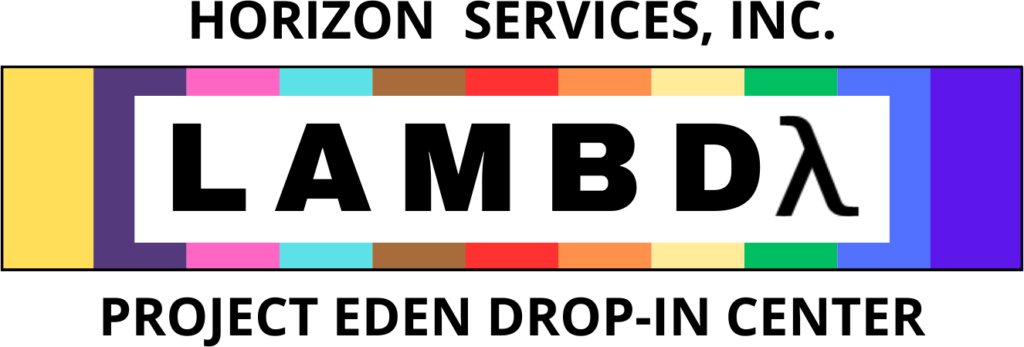Family conflicts can be difficult to navigate. They often result in long-term damage to relationships. Fortunately, family counseling can help family members express their feelings and resolve conflicts.
If you are looking for an effective way to address family disagreements and help mend troubled familial relationships, continue reading.

What Causes Family Conflicts?
The most important thing to note is that family conflict is unavoidable! Family members often have different opinions and beliefs that can lead to disagreements. Conflicts within family dynamics can arise from a variety of sources, including:1
- Disagreements over money and resources
- Different parenting styles
- Communication issues
- Differing religious or political beliefs
These family disputes can hurt family relationships if left unresolved. These conflicts can lead to irreparable damage to the family dynamic. The following section will describe the dangers of ignoring family conflicts.
Breaking the Silence: The Devastating Consequences of Unresolved Family Conflict
Conflict within a family can be devastating if it is not resolved. Family conflict may cause destructive behaviors that can be physical, verbal, or emotional. For instance, when siblings compete for their parents’ attention, they may engage in physical fights, verbal arguments, or resort to insults to gain the upper hand. These conflicts can cause anger, resentment, sadness, and depression among family members.
In extreme cases, family conflict can make family members feel isolated and disconnected, causing family relationships to further deteriorate. Family conflicts can be catastrophic for family relationships and individual psychological health.2
At Horizon Treatment Services, we encourage families to strengthen their bonds through family collateral sessions.
What Are the Benefits of Family Conflict Counseling?
Counseling can provide an effective solution for resolving family conflicts. Family collateral sessions helps break the cycle of conflicts. Some of the ways it accomplishes this are detailed below.
Safe and Neutral Space for Communication
Counseling can provide a much-needed space for communication during family conflict resolution. It allows family members to express their thoughts, opinions, and frustrations. A therapist mediates to ensure that everyone is heard and understood.
A trained counselor can help you and your family learn better communication strategies. These strategies help bridge gaps and facilitate understanding.
Identifies Underlying Issues and Emotions
Counselors have trained ears and eyes for spotting emotional triggers. As a result, they can quickly identify the sources of tension. They help families discuss these issues and develop healthy solutions for the future. Through talk counseling, counseling empowers families to find meaningful, lasting resolutions.
Promotes Understanding and Empathy Between Family Members
Family conflict counseling helps family members empathize with and understand each other. It helps family members challenge assumptions and find common ground. It provides a space for them to understand each other better and move forward from difficult situations.
Also, family conflict counseling can help families work through any potential Adverse Childhood Experiences (ACEs). Our Project Eden Youth Services offers family conflict resolution services, which aim to help youth make sense of their circumstances, establish healthy coping mechanisms, and create strong, healthy bonds within the family unit.
Receiving Familial Support for ACEs and Building Happier, Healthier Selves
These experiences, which may have occurred either in the current family unit or show up as symptoms in one of the parents due to their own ACEs, can affect families in many ways and lead to negative coping skills, parenting strategies, or support tendencies.
Receiving the help and education about how ACEs work, along with integrating treatment for them in counseling, can help families promote empathy and understanding even further.
Helps Establish Healthy Boundaries and Expectations
Counselors can help families create healthier boundaries and expectations. Healthy boundaries and expectations help families handle tough disputes peacefully. This reduces contention and improves communication.
Boundaries establish the amount of contact, involvement, and intimacy between family members. They also ensure everyone feels comfortable with their roles within a family structure.
Other Important Benefits to Consider
Other benefits of family conflict counseling include:
- Increased respect for one another
- Improved ability to negotiate and compromise
- Increased sense of self-awareness and understanding
- Increased acceptance and tolerance for each other’s differences
- Improved relationships with siblings, parents, and other family members
- Clarity on how to address and resolve future conflicts
- Increased coping skills for managing stress
- Enhanced understanding of each individual’s needs in the family system
- Improved teamwork among family members
- Greater trust among family members
- Increased feelings of safety and security in the home environment
Types of Counseling for Family Conflict Resolution
There are many different types of family conflict counseling. The right approach can help families navigate challenging situations and foster family communication. Therefore, it’s critical to consider all options before making a choice.
Individual Counseling
Family conflict resolution requires a multifaceted approach. Adolescents in particular may need individual counseling to talk openly, honestly, and confidently. Discussion topics can include alcohol and drug use, family interaction patterns, and personal goals.3
Individual counseling gives adolescents a safe place to set and achieve goals. Life changes, interpersonal communication skills, and managing relationships are all on the list.
Family Collateral Sessions
A family counseling session can help all members express their needs and improve relationships. Through active participation and honest communication, sessions can focus on:4
- Rebuilding damaged relationships
- Educating the whole family about substance use disorder (SUD)
- Helping the family establish clear rules and consequences for the adolescent’s behavior
- Helping teens find ways to live a healthy lifestyle without using drugs
Counseling with trained professionals should be conducted in a safe and supportive environment. At Horizon Treatment Services, we offer collateral sessions with families that can be tailored to meet each family’s specific needs.
Group Counseling
Group counseling allows members to work together to support each other through challenges. It also provides a safe environment where teens can find positive peer support.
Parent Support Group
Parent support groups provide family conflict counseling that can help resolve family conflicts. They teach family members how to navigate disagreements effectively. These sessions provide parents and guardians with a safe environment to talk about:
- Teen recovery
- Family relationships
- Anger management
- Conflict resolution
- Effective parenting
- Codependency
Steps of the Counseling Process
Family conflict counseling is a step-by-step process based on family dynamics. Below are some of the common steps you may work through in your family counseling journey.
Initial Assessment
The initial assessment is an important step in family conflict counseling. It provides the foundation for adding potential interventions and progressing with counseling sessions. This phase involves interviewing family members individually. It also reviews their family histories to gather information about individual family dynamics.
A counselor will conduct a thorough assessment at the time of initial intake. This assessment aims to help us determine which program is right for you.
Goal Setting and Treatment Planning
The goal of treatment planning in family conflict counseling is to provide a roadmap. It outlines what steps must be taken to resolve family conflicts. Conflict is resolved through collaborative problem-solving and effective communication.
Implementation of the Plan and Ongoing Support
After identifying treatment goals, implementation of the plan is key to conflict resolution. This usually involves gradually introducing different intervention techniques.
Individuals achieve positive change through a variety of different, personalized healing plans, such as:
- Motivational interviewing (MI)
- Cognitive behavioral therapy (CBT)
- Family system approach
- SMART recovery and other evidence-based practices
Evaluation and Adjustment of the Plan as Needed
Evaluation and control are essential parts of any family conflict counseling process. Counselors can determine success by observing, assessing, and inquiring about their experiences. Then they can customize the plan according to their client’s needs.

Family Conflict Counseling at Horizon Treatment Services
When dealing with family conflict, choosing the right treatment service is extremely important. With family collateral sessions, family members who have a loved one with substance use disorder can work to reconcile and build healthier relationships.
Our team provides an impartial view of family dynamics. We can help individuals get the care and support they deserve.
Our Mission
Counselors at Horizon Treatment Services are committed to meeting each individual’s needs. Our ultimate goal is to help everyone who walks through our doors get the help and support they deserve.
We aim to provide each individual with the tools, education, and guidance they need to foster healthy, loving relationships. Family collateral sessions are one of the most important ways to help address conflict within the unit, and understanding the far-reaching effects of ACEs can help with this as well.
Contact Horizon Treatment Services Today
You don’t have to face family conflict alone. If you or someone you know is looking for help, reach out to us today for more information about our available treatment options.
Resources
1https://www.betterhealth.vic.gov.au/health/healthyliving/family-conflict…
2https://www.verywellmind.com/the-toll-of-conflict-in-relationships-3144952
3https://www.ncbi.nlm.nih.gov/pmc/articles/PMC6377288/
4https://www.healthline.com/health/family-therapy#what-to-expect








